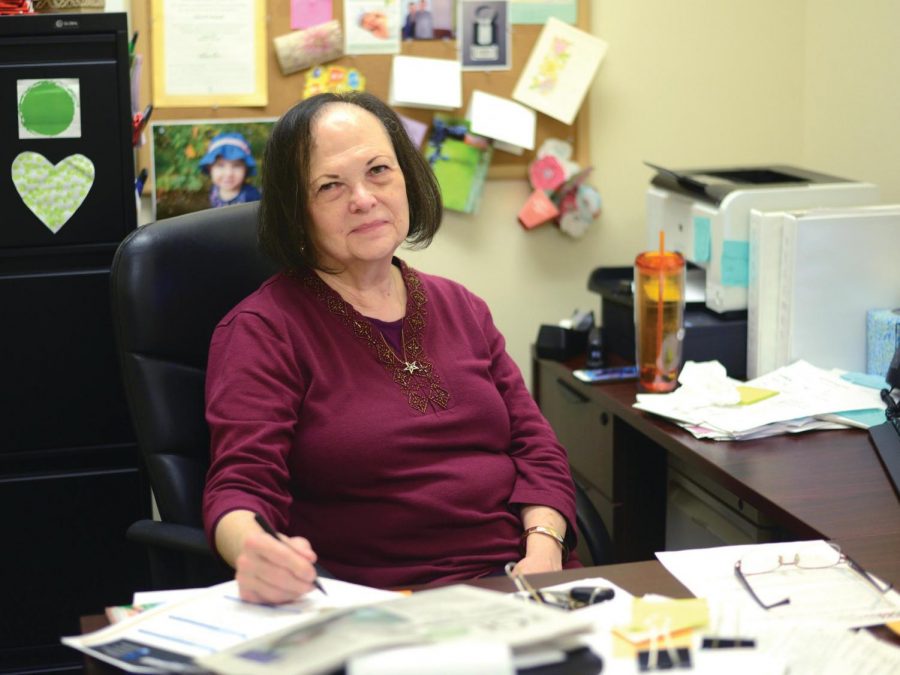How-To: Graduate Successfully
Career Development offers advice to seniors
March 13, 2018
April and May are big months for college seniors – it’s time to graduate. According to an article posted by thebalance.com in June 2017, the average amount of time it takes for a recent grad to find a job is six months after graduation, but what can help quicken the process?
Elsie Boucek, a counselor at Point Park University’s Career Development Center, believes the key to post-graduation success is frequent visits to the center, networking and a solidly built resume.
“Believe it or not, we would like to [start] seeing students as freshmen,” Boucek said. “And the reason for that is, we can work with students on starting to develop their…marketing materials, their resumes and cover letters… [We want to] get them to use the resources, but work with them so that when they’re looking for a job or an internship they feel more prepared.”
Point Park’s Career Development Center offers students with a variety of helpful tools for both current attendees and alumni to use to their advantage. Located in West Penn on the fifth floor, the staff is headed by Angela Scaramucci, with six counselors and specialists tailored to each school within the university.
Handshake, a website present on many college campuses and in many career centers, is one of those tools. It allows students to upload their resumes, have the counselors review them and suggest changes, upload various cover letters and search for jobs and internships.
“We eventually post every [job/internship] we know about on Handshake,” Boucek said. “We are not a placement agency, so we’re not doing the work. We’re teaching you to do the work, so that when you do leave here, you know what to do.”
In addition, counselors are trained in giving students the Myers-Brigg Personality Test, a psychologically developed personality definer that can help those who take it see their strengths, weaknesses, habits and potentially successful career paths.
“Networking is vital, as is meeting people,” Louis Spanos, a 2017 sports, arts and entertainment management graduate, said. “I don’t know if I would’ve gotten nearly as close to getting a job without it. Network even after you’re not looking for a job anymore. It can still help to know people.”
In addition to all the physical devices for career finding, the development center asks that each student try their hand at networking, which worked for Spanos, who now works for WordWrite Communications.
Networking is an informal or formal way of meeting people already in your field – it creates connections that may lead to a job. Point Park offers two Internship and Job Fairs, one each semester, free to students. There, students can talk to and interact with companies hiring and looking for any new and developing workers.
Kariann Mano, a 2016 public relations and advertising graduate and an assistant account executive at Havas PR, suggests that even if students don’t find someone through a job fair, reaching out is still important and works just as well.
“I would recommend not being afraid to reach out to someone in a job you’d like to have,” Mano said. “Ask them out to coffee and just talk about the job.”
Though the idea of asking professionals out to coffee can make students feel bothersome or out of line, Spanos encourages current students to make the attempt.
“People never forget what it was like to be a student,” Spanos said. “No matter how long ago they went to school, you never forget that feeling and so they want to help you.”
The Career Development Center additionally offers help to Point Park alumni for life, as does the University of Pittsburgh. Alumni are given the same tools and services as current students, and can contact the counselors any time post-graduation.
The success rate at Point Park is difficult to pin down, as only 10 to 20 percent of graduates take the Graduate Outcome Survey that is used to determine their employment status and the success of the university and its graduates.
In 2015, 87 graduates filled out the survey, or 13 percent, and of those 87 alumni, 52.7 percent are in jobs directly related to their field of study and 24.32 percent are in jobs that are somewhat related.
The survey also lists that a majority of the alumni who answered 36.84 percent worked for their current employers while they were in school, while 27.63 percent took one to three months to find a job post-graduation.
In addition, the survey provided by the university, students have the option to search for alumni via Point Park’s LinkedIn page, which produces its own results for job placement of graduates and includes geographical location.
Visits to the career development center aren’t required, or even necessary, but the tools and services they offer students help them build careers and a network of professionals willing to help – and that’s the key to post-graduation success.
“My advice is to just relax, even though I know it’s feels very stressful,” Mano said. “Just focus on what you want to do, and who knows? It could all turn around in a matter of days.”



















